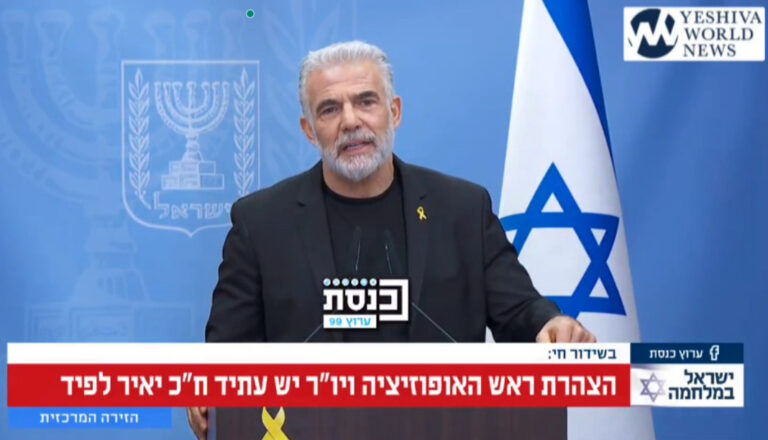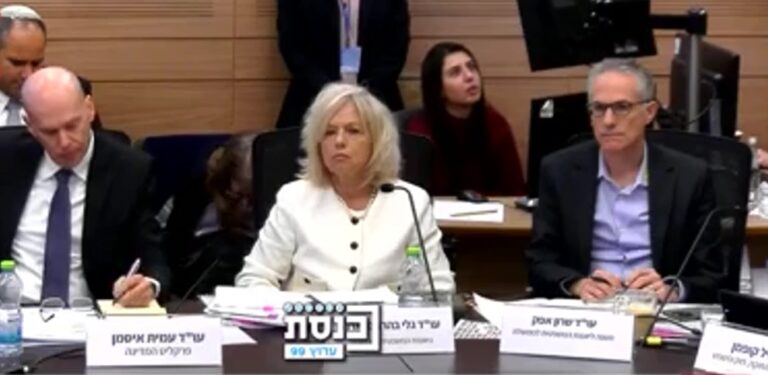We find in this week’s parsha that Hashem tells Bilam not to go with the emissaries of Balak. As the pasuk says Hashem tells Bilam, “You shall not go with them! You shall not curse the people because they are blessed.” (22; 12)
Later on, we find that the Torah relates how Hashem grants Bilam permission to go, as it says ‘Hashem came to Bilam at night and said to him, “If these men have come to call for you, arise and go with them, but the word I speak to you-that you shall do.”(22; 20)
What happened? To the naked eye it would seem that Hashem, kaviyachol, changed his mind and allowed Bilam to go to Balak so he can curse bnei Yisroel?
The gemara in Makos (10b) says ‘B’derech sh’adam rotzeh leilech buh, molichin oso’; the path that a person chooses to follow they bring him (and allow him) to go down that road. Continues the gemara, we know this to be true from pasukim in Torah, Nevi’im and Kesuvim. The gemara then quotes the pasuk from this weeks parsha, ‘arise and go with them ‘. The gemara mentions the above concept of ‘molichin oso;’ ‘they’ bring him. But who are ‘they’? Who is the chaperon that brings a person to that road that he chooses?
Maharsha answers that every time a person has a desire or a thought, he creates a malach. A good thought creates a good malach; a bad thought, a bad malach. It is those malachim that are created through our thoughts that are molichin oso; they bring a person….not Hashem. It was those bad malachim created by Bilam that brought him to Balak.
There’s a fabulous Malbim that brings out this point. At the end of parshas Shelach, the pasuk says ‘and you shall not wander after your hearts and after your eyes.’ (15; 39) Rashi quotes a Chazal which says ‘the eyes see, the heart desires and the body commits the act.’ He asks, if the action begins with the eyes why does the pasuk first say ‘‘and you shall not wander after your hearts…’; shouldn’t the order be reversed and state ‘‘and you shall not wander after your eyes and after your heart?’
Malbim answers, it’s because even before the eyes see a person has already made the mental decision: will I look or not? When a person walks out his front door in the morning he has already made the decision whether they will look at their surrounding or disregard them. It all starts with your heart; what a person wants and what they want to accomplish. A person makes that mental decision before their eyes see. One who wishes to look, molichin oso-he gets assistance from those malachim he created; for those that don’t want to look they receive assistance from their malachim that they created. That’s pshat in ‘they bring him’.
The Kotzer says that there’s nothing that stands before a determined person. It’s explained, that there’s nothing that can stop a person from wanting. If a person is determined to do something and has a desire towards it nothing can stop them. Once a person is on that track and he has that rotzon, molichin oso-for good or for bad. Bilam had that rotzon; Hashem knew that; B’derech sh’adam rotzeh leilech buh, molichin oso’.
We must all be alert and be able to make the proper decisions, even more so with the summer months starting full gear. Once the decision is made, molichin oso-we have help. We make the ultimate decision-will it be for good or chas v’shalom not.
May we all merit to have the proper thoughts and may the assistance that’s being provided for us assist us in achieving the ultimate; the coming of Moshiach b’karov.










